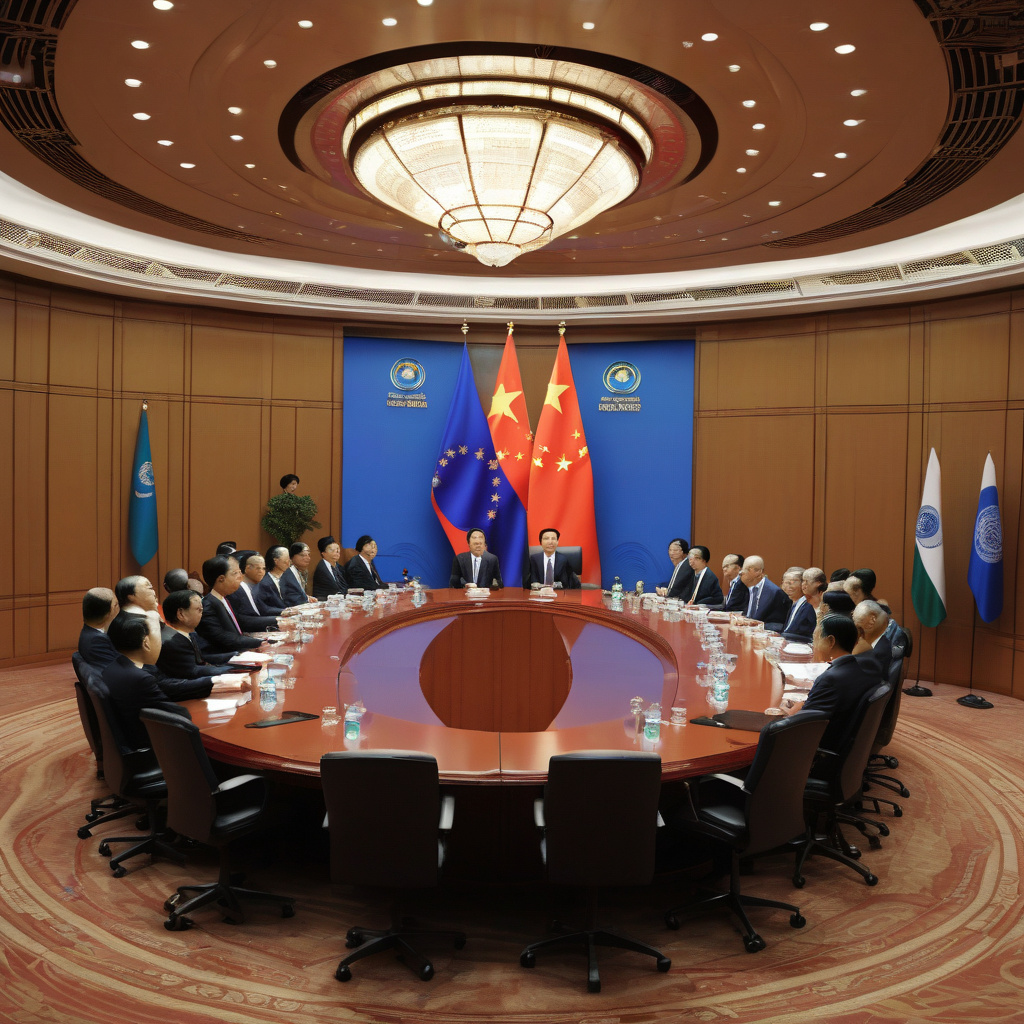China Urges SCO States to Ensure Secure and Fair AI Development
The Shanghai Cooperation Organization (SCO) has long been a key player in facilitating cooperation and stability among its member states. Recently, China has taken the initiative to invite SCO members to join a new AI cooperation plan aimed at ensuring secure and fair development of artificial intelligence technologies.
Artificial intelligence (AI) has become increasingly prevalent in various aspects of our lives, from healthcare and finance to transportation and entertainment. As the capabilities of AI continue to advance, it is crucial for countries to collaborate and establish guidelines that promote the responsible and ethical use of this technology.
China, as a leading force in AI development, has recognized the importance of setting standards to govern the use of AI systems. By inviting SCO states to participate in this new cooperation plan, China is signaling its commitment to fostering a regulatory environment that prioritizes security and fairness in the deployment of AI technologies.
Ensuring the secure development of AI is paramount in safeguarding sensitive data and protecting against potential cybersecurity threats. By working together within the SCO framework, member states can share best practices and expertise to enhance the resilience of their AI systems against malicious attacks and unauthorized access.
Furthermore, promoting fair AI development is essential in mitigating bias and discrimination that may arise from the use of AI algorithms. By establishing guidelines that uphold transparency and accountability in AI decision-making processes, SCO states can build trust among their populations and ensure that AI technologies benefit society as a whole.
One example of the importance of secure and fair AI development is the use of facial recognition technology. While this technology has the potential to enhance security and streamline processes, it also raises concerns about privacy and surveillance. By collaborating within the SCO framework, member states can work towards implementing safeguards that protect individual rights while harnessing the benefits of facial recognition technology.
In addition to addressing security and fairness, the new AI cooperation plan offers SCO states the opportunity to leverage AI for economic growth and innovation. By investing in research and development initiatives and promoting cross-border collaborations, member states can unlock the full potential of AI technologies to drive progress in key sectors such as healthcare, agriculture, and manufacturing.
As China urges SCO states to prioritize secure and fair AI development, it sets a positive example for global cooperation in harnessing the power of artificial intelligence for the benefit of all. By working together to establish common standards and guidelines, SCO members can pave the way for a future where AI technologies contribute to a more secure, fair, and prosperous world.
In conclusion, the invitation for SCO members to join the new AI cooperation plan spearheaded by China underscores the importance of collaborative efforts in shaping the future of artificial intelligence. By prioritizing security, fairness, and innovation in AI development, SCO states can position themselves at the forefront of responsible technology governance and set a precedent for global AI cooperation.
SCO, AI, Cooperation, Development, China











